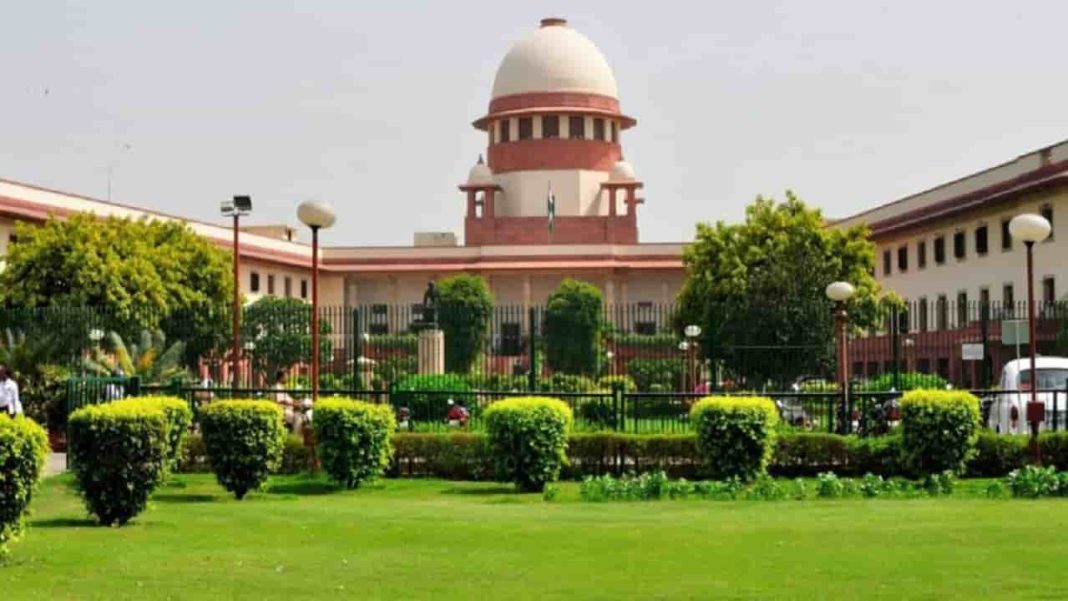The Indian Union Muslim League has filed its written submission before the Supreme Court on a petition seeking stay of the Citizenship (Amendment) Act (CAA), 2019 and the Citizenship Amendment Rules 2024.
As per IUML, the claim that the CAA offered protection to persecuted minorities from neighbouring countries was baseless as it excluded certain neighbouring countries and certain communities from its purview.
It pointed out that only Hindus, Christians, Parsis, Sikhs and Jains from Pakistan, Afghanistan and Bangladesh are eligible for the benefit under the CAA, that too if they have entered India before December 31, 2014.
It said even while including Pakistan in the list of countries, CAA failed to extend protection to the Ahmadiya community, which was one of the most persecuted groups in Pakistan. It similarly excluded rationalists, atheists and agnostic persons, who did not profess any religion.
The Act excluded Myanmar, which was a part of British India till 1935 and where the International Court of Justice has arrived at a finding that genocide was perpetrated against Muslim Rohingyas refugees, who were presently, due to persecution, living in India under abject conditions under the threat of deportation.
CAA excluded Sri Lanka, which was a neighbouring country, where Tamil Hindus were under persecution. It also excluded China, which was a border country where Buddhists and Uighur Muslims were persecuted. The Act further excluded Jews, who have experienced discrimination over decades.
The petitioner further questioned the claim that the CAA was meant to offer citizenship to minorities who fled the neighbouring countries fearing persecution.
It said the foundational claim that CAA aimed to extend citizenship benefits to persecuted minorities was fundamentally flawed, and that it failed to as it arbitrarily chose between persecuted groups of different kinds. This was not merely an issue of under-inclusion per se.
Rather, the exclusions demonstrated the lack of any rational nexus to the stated object of enacting a refugee policy. The exclusions were also patently grounded in discriminatory criteria, which was constitutionally impermissible. Any refugee policy must be fair, reasonable, non-discriminatory and a universal refugee policy that took into account the needs of all those who sought refuge in India and did not discriminate on the basis of ‘protected characteristics”.
The petitioner argued that the stated purpose of enacting a refugee policy through the CAA, 2019 was ‘completely repudiated’ in the CAA, Rules 2024. There was no test stipulated under the CAA Rules, 2024 to prove or scrutinise if the applicant was compelled to enter India because they faced persecution or fear of persecution.
The Application Forms as per the Rules did not require the applicants to narrate the circumstances due to which they sought shelter in India. They were not obligated to make any such declaration, it pointed out.
It said merely an eligibility certificate was required from a community-based leader attesting that the applicant was a member of the selected religious community.
The petition said the Rules, therefore, arbitrarily presupposed that any person of Hindu, Sikh, Buddhist, Jain, Parsi or Christian community, who entered India from Afghanistan, Bangladesh or Pakistan, were either facing persecution or feared persecution.
It further argued that the CAA and the Rules did not require the applicant to renounce the citizenship of their native country, thus creating a possibility for dual citizenship, which was directly violative of the parent Act. This made the rules both ultra vires and manifestly arbitrary.
The petitioner argued that the three tests of interim relief- prima facie case, balance of convenience and irreparable injury were in favour of staying the CAA and the Rules.
Regarding the prima facie case, the petitioner argued that the CAA, 2019 suggested that citizenship may be granted to certain stipulated minorities based on religion after satisfying the conditions set forth in the rules.
It said this was for the first time that the grant of citizenship in a secular nation was based on a ground that is a protected ground under anti-discrimination law – on the basis of religion. In contrast, the Constitution allowed for conferment of status of a citizen based on registration, naturalisation, birth and descent, which were all secular grounds and not linked to the religion of the applicant.
The issue to be decided was whether such a criterion was consistent with the basic features of the Constitution. Given that citizenship was the ‘right’ to have rights, discriminatory criteria in the grant of citizenship raised especially serious constitutional issues, it added.


